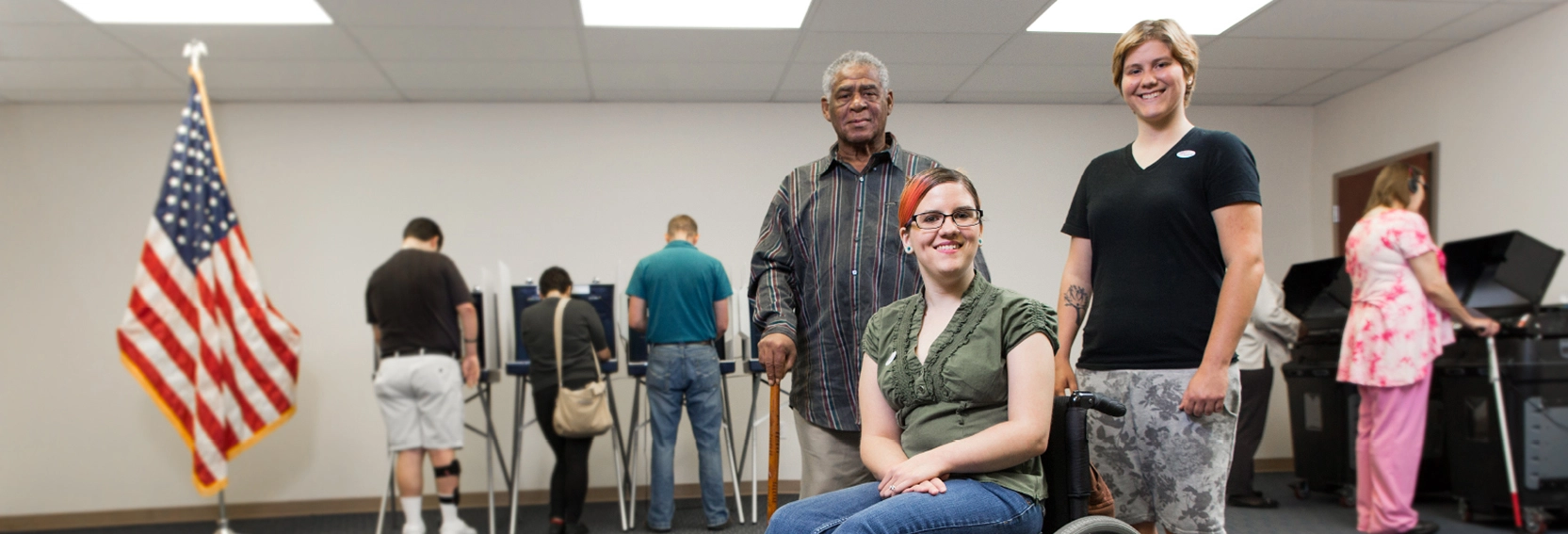During an emergency such as a hurricane or a public health crisis, there is not only a need to focus planning and response efforts on disability-specific aspects of the emergency, but also to seek the input and expertise of people with disabilities in the process. If elected, how would your office work to ensure that state emergency planning (i.e., health testing, sheltering and safety of congregate living populations, et cetera) is inclusive of Florida’s disability communities? How will you work to ensure that communications and other information from the state is accessible to people with disabilities?
Our office serves all the citizens of our district, regardless of race, ethnicity, gender, etc.
In the event that the global pandemic lasts through the current school year or possibly beyond, how would you work with state educational officials to ensure that relevant state and federal educational guarantees for students with disabilities are adhered to, and do you believe that it is possible to appropriately educate students with disabilities remotely or through virtual education?
As a legislator, my primary responsibility is to represent the citizens of my district. I will support legislation that ensures that all students are treated without prejudice.
In recent years, the state legislature has devoted much attention to the issue of mental health service delivery and crisis response systems in state public schools. In your opinion, how should the state work to ensure that the mental health needs of its students are met, and what reforms are needed to provide adequate mental health and crisis response services in our schools? When, if ever, is it appropriate for schools to initiate involuntary examinations for its students under the Florida Mental Health Act (“the Baker Act”)?
Due to the general decline in marriage and other factors, the state must provide more $ for mental health services in our schools. It is the school's responsibility to eliminate the stigma that students and others attach to asking for mental health services. It is appropriate under extreme circumstances, where the student is putting themselves into situations where they are harmed or others around them are put in danger of physical or mental abuse.
It has become apparent that COVID-19 spreads most easily in institutional and congregate living arrangements. If elected, how would you work to prevent the unnecessary institutionalization of persons with disabilities and reduce other forms of congregate living in favor of serving persons with disabilities in their own homes or the community both during and after the current pandemic? What will you do to ensure that people with psychiatric disabilities are afforded the services they need to succeed in their own homes and communities and avoid psychiatric hospitalization?
The best solution to help persons with disabilities remain at home is additional funding for housing assistance through Affordable Housing Funding - Sadowski.
Even before the pandemic began and massive job losses ensued, 2.7 million Floridians were uninsured. Research shows that under normal circumstances the uninsured have much greater challenges accessing health care, and these disparities are exacerbated during a health crisis. Do you support expanding the state’s Medicaid program to cover adults (19-64) with income up to 138 percent of the federal poverty level to provide more than 800,000 Floridians with coverage? Why or why not? Do you support proposals to utilize a “block grant” or “per capita cap” approach to contain Medicaid spending? Why or why not?
I do not favor expanding Medicaid. Able bodied people between 19 and 64 are best served by improved education and other efforts to find better employment opportunities.
Despite the protections of the Americans with Disabilities Act (the ADA) and related state and federal laws, the unemployment rate of people with disabilities continues to be much higher than that of people without disabilities. If elected, how would you work to promote meaningful opportunities for supported employment and competitive, integrated employment of people with disabilities in the state? What policies do you advocate to support the academic and career success of students with disabilities, especially for students from historically marginalized communities and backgrounds?
I believe it is the responsibility of state and federal government to partner with non-profit organizations and find other ways to give all citizens a pathway to meaningful employment. We all need a reason to get out of bed every morning to create a better world for ourselves and our family.
Nationwide it is believed that there are more than 750,000 people with disabilities who are incarcerated, and many of these individuals face substantial barriers to reentry when they complete their sentences and return home. What reforms do you support to ensure that returning citizens with disabilities have the resources, skills and mental health supports to succeed when they complete their sentences?
I would support legislation that allows and funds faith-based mental health education and rehabilitation in our state prisons. I would support legislation that funds programs that prepares the incarcerated for re-entry into the workplace upon release.
What is your experience working with people with disabilities or alongside disability-led organizations? Please provide examples of your experience addressing and responding to disability issues or describing disability advocacy efforts you have participated in either personally, professionally, or while in elected office if applicable. If elected, how would you integrate the input and perspectives of people with disabilities in your office’s planning and legislative efforts?
My only experience is with family members who have mental and physical disabilities. These people need assistance entering the workforce.
